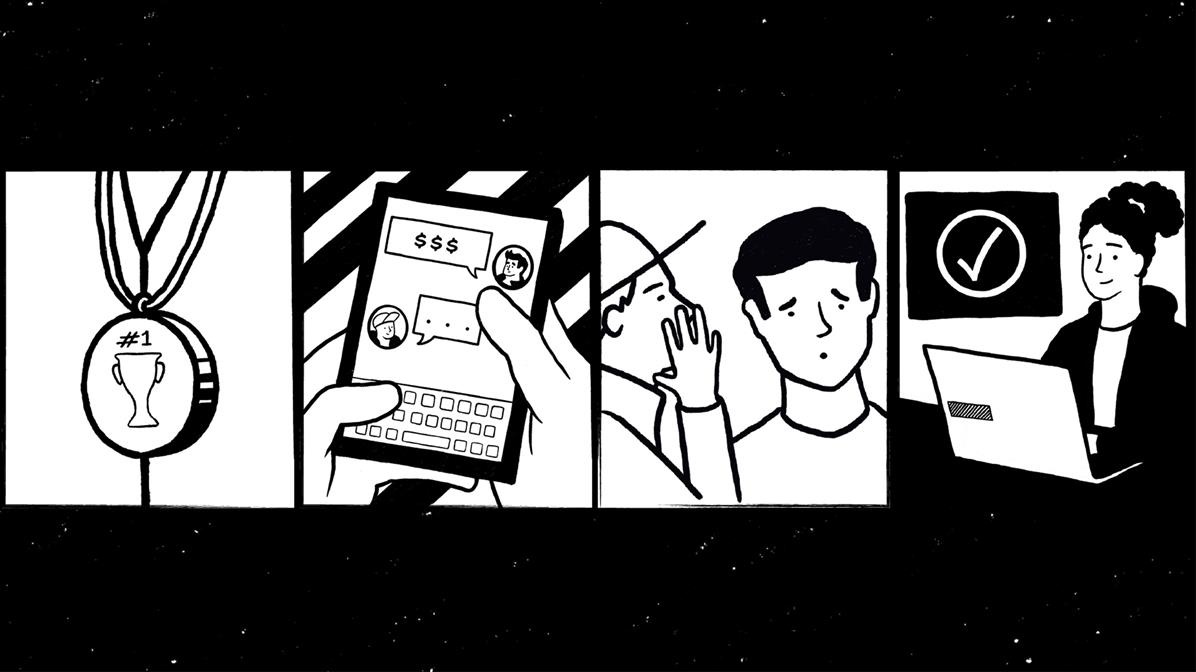Athlete ambassadors boost efforts to prevent competition manipulation at Beijing 2022

21 Jan 2022 – The International Olympic Committee (IOC) recently appointed several new athlete ambassadors to help raise awareness of the threat of competition manipulation among qualified athletes, their entourage members and officials currently getting ready for the Olympic Winter Games Beijing 2022. They will support the IOC’s dedicated campaign “MAKE THE RIGHT DECISION”, which was already activated successfully for Tokyo 2020.
The new ambassadors are the following:
- Danka Bartekova (shooting, Slovakia, member of the IOC Ethics Commission)
- Andreas Linger (luge, Austria)
- Andrej Miklavc (Alpine skiing, Slovenia)
- Nicola Minichiello (bobsleigh, Great Britain)
- Jakob Spik (Alpine skiing, Slovenia)
- Emma Terho (ice hockey, Finland, Chair of the IOC Athletes’ Commission)
- Pernilla Wiberg (Alpine skiing, Sweden)
- Yang Yang (speed skating, China, Chair of the Beijing 2022 Athletes’ Commission)
Click here to meet the ambassadors and listen to what they have to say!
Competition manipulation happens when athletes intentionally underperform or lose on purpose. It is also when officials intentionally make bad decisions that affect the competition. Whether it is money, a better spot in the next round of the tournament or any other kind of benefit, there is always an advantage in exchange. Competition manipulation kills the spirit of sport, and it is important athletes are empowered to make the right decisions.
Emma Terho, Olympic ice hockey medallist and Chair of the IOC Athletes’ Commission, explained: “Competition manipulation harms the essence of sport, fair play and the trustworthiness of the result. We all need to take responsibility to keep our common passion – sport – clean. Prevention is key, and in this sense, it is essential that athletes are informed about the risks of competition manipulation and the possible consequences on their career.”
Ambassador Danka Bartekova, an Olympic shooting medallist and member of the IOC Ethics Commission, agreed, adding: “Match-fixing and illegal betting completely ruin the passion of sport that all athletes have. We want to be clean, we want to play fair, and this is why we need to educate the athletes on this issue, so they are aware of how to protect their sport, and themselves.”
“No athlete begins their career with competition manipulation in mind, but either through adversity or through not understanding the rules, athletes can find themselves in a situation that could ruin everything they have worked hard for,” Bartekova pointed out.
Nicola Minichiello, a retired bobsledder and world champion from Great Britain, added: “Sports should be pure, and the Olympic Games give us the opportunity to observe athletes performing at the best of their abilities, taking both themselves and the observers on a journey of emotions with passion and surprise. Competition manipulation is a threat to everything that the Olympic Games stand for.”
Athlete365, the IOC’s digital platform for Olympians and elite athletes, features a dedicated section on the prevention of competition manipulation, with a wealth of educational material and advice from the athlete ambassadors who were selected in close collaboration with the International Federations (IFs) and National Olympic Committees (NOCs). A self-explanatory Code of Conduct is now available in 21 languages. In addition, during an elearning course, the users learn how to recognise suspicious behaviour and what to do when confronted with concrete situations. The platform also provides an educational toolbox and guidance on how to submit a report confidentially via the IOC’s Integrity Hotline. Likewise, there is customised information for the athletes’ entourage and a directory of IFs’ action in this important field.
Swedish ambassador Pernilla Wiberg, an Olympic Alpine skiing champion, noted: “Competition manipulation is a topic that we need more and more awareness of, because many athletes believe that this is something that can’t affect them, or their sport.”
Yang Yang, an Olympic champion in short track speed skating from China, summed it all up when she said: “Education is key. As ambassadors against competition manipulation, we are all playing a part in educating athletes from around the globe about the rules and risks surrounding competition manipulation. This is in an effort to ensure the athletes are prepared and know exactly what steps to take to prevent competition manipulation, and to report any related incidents that might take place.”
The campaign is being activated not only in the digital space. NOCs and IFs have also integrated educational elements about the prevention of competition manipulation and the ambassadors into preparatory sessions with their athletes, entourage members and officials for Beijing 2022.
Please contact the Olympic Movement Unit on the Prevention of the Manipulation of Competitions at [email protected] if you would like to learn more about or support the campaign.





